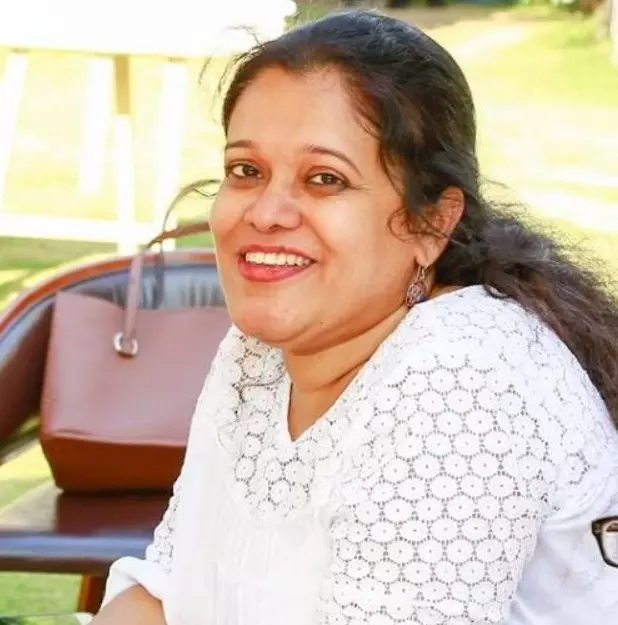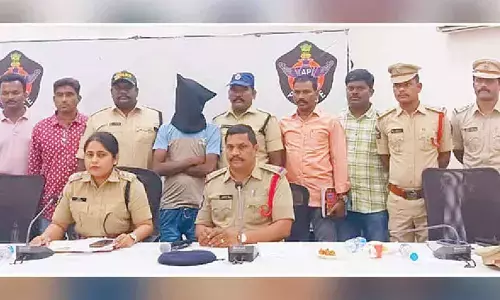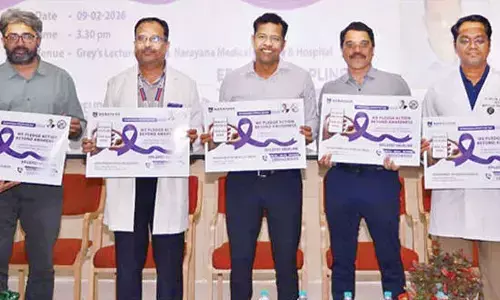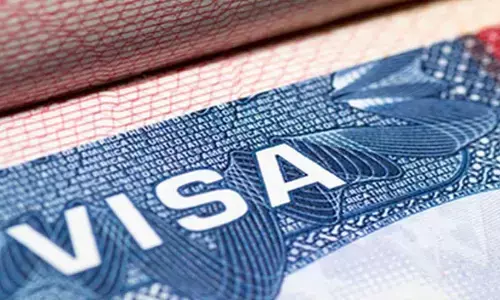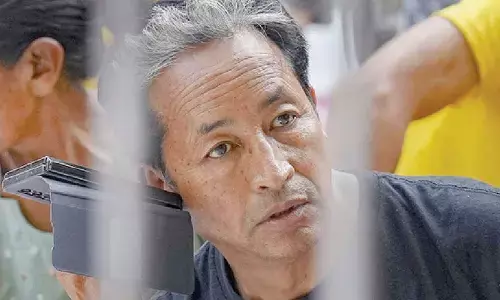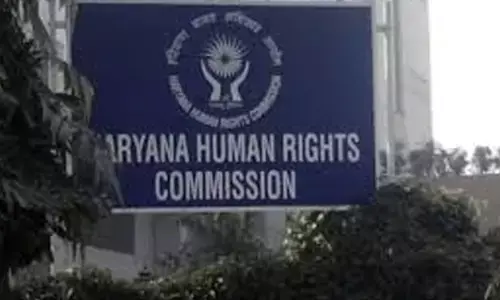Waking up due to a pulsating heart? Understand what it could mean
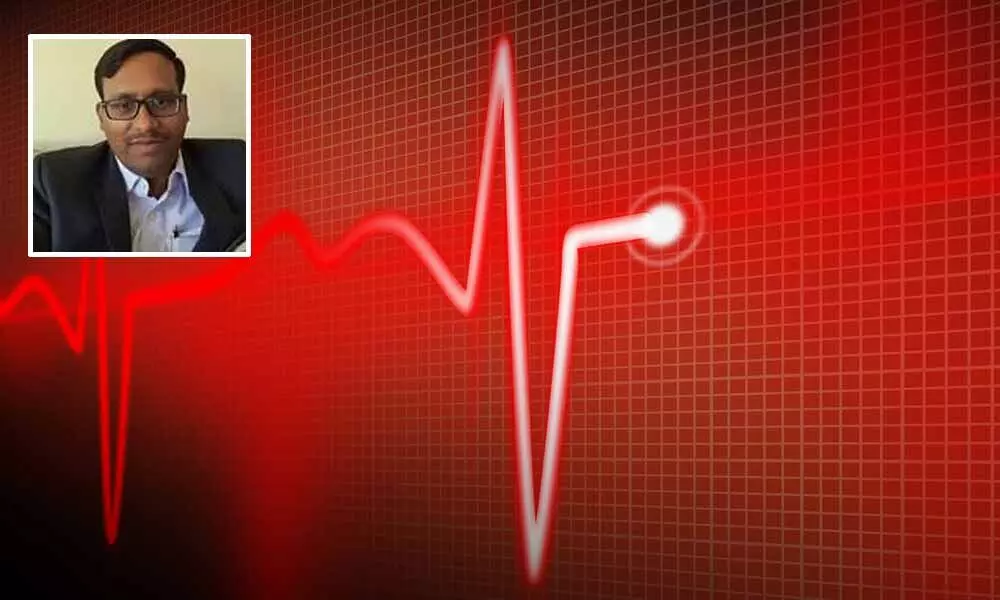
Have you ever experienced a sensation where you feel as though your heart is racing so fast, that almost feels exhausting and feeling of doom?
Have you ever experienced a sensation where you feel as though your heart is racing so fast, that almost feels exhausting and feeling of doom? Sometimes even a sensation where your heart has may have skipped a beat or two? This sensation is not necessarily restricted to the chest though but can even be felt in the neck or the throat. While in the majority of the cases, this 'sensation' termed as 'palpitations' are generally harmless, it may also be an indication underlying heart condition.
What is the cause of arrhythmia?
Fast heartbeat can be secondary to anaemia, an endocrine disorder, cardiac disease or primary heart rhythm disorders. In these disorders, primary illness needs to treated to get rid of these fast-beating episodes. There is a long list of diseases manifesting as fast-beating but it can happen to some acquired factors like stress, panic, anxiety, lack of sleep. In these acquired situations a racing heart is simply an indication for us to slow down in life. Palpitations with the underlying cardiac disease need an aggressive evaluation as it may be the turning point in stage of heart disease. Palpitation with syncope is a warning is a marker of heart disease and need a different battery of test and evaluation in consultation with electrophysiologist to assess for risk of sudden cardiac death.
Can a racing heart be indicative of cardiac arrhythmia?
Racing heart as the feeling of palpitation can be accompanied by symptoms of syncope (sudden fainting spells), chest pain or discomfort, breathlessness or even weakness could indicate an arrhythmia. Cardiac arrhythmias a disorder of heart rhythm. It can be very fast(tachycardia) or very slow(bradycardia). As the heart is an independent organ unlike other organ and has its own electrical activity means that it has its own generator (SA Node) and transmission system across the entire heart(AV Node, and specialised electrical fibre) to provide fast and most efficient system to meet body need. Any abnormality in these electrical circuits can lead to arrhythmia This may cause the heart to beat abnormally fast or slow and they can lead to the symptom of palpitation to sudden cardiac arrest.
Are all palpitation same?
Palpitations which are unprovoked (without anxiety, panic, stress) need evaluation. If it is unprovoked and associated with the history of syncope, heart disease, stroke, transient ischemic attack it is strongly recommended to be evaluated by heart rhythm specialist(electrophysiologist) because many rhythm disorders can be cured and at the same time if left under-evaluated or undertreated, it threatened the life patient too.
What is the symptom of arrhythmia?
Palpitation is the most common complain of arrhythmia. But symptom of giddiness, syncope(fainting), easy fatigability can also have arrhythmia as underpinning and need evaluation. Atrial fibrillation which is a rhythm problem can be silent or it can manifest from palpitation to syncope to stroke. A recent deterioration of mental abilities in elderly can have arrhythmia as cause and need cardiac evaluation for rhythm disorders. Sudden collapse and cardiac arrest are two most dreadful presentation of arrhythmia. If any family member has had it then not only patient but family need evaluation to rule out genetically disease need treatment and lifestyle modification to prevent further such events in family.
Should one be alarmed if they have an arrhythmia?
Arrhythmias are the disorder of electrical instability and it needs aggressive evaluation if it's a primary disorder. Arrhythmia can be secondary to other systemic diseases where optimization of treatment of the primary disease can control the rhythm disorder.
An episode of sudden collapse with loss of memory of the episode or a syncope with any injury is the mark of sudden and severe electrical abnormality underpinning the episode and hence needs aggressive evaluation. These symptoms may be predecessor to cardiac arrest or SCD in future. Some arrhythmia(atrial fibrillation, atrial flutter) increases the risk of stroke and needs evaluation for candidate for anticoagulation to prevent stroke.
Some arrhythmia if untreated can lead to heart failure in long term and should be looked by an cardiologist to assess for reversibility of heart failure(tachycardiomyopathy). Heart failure increase the risk of arrhythmia and sudden cardiac death and hence he/she should be evaluated for heart failure who can be offered device therapy (CRT-Cardiac resynchronization Therapy) for improve the heart pumping function and ICD to abort sudden cardiac death(SCD) in these high risk population.
Treating arrythmia
Arrhythmia treatment start from diagnosis. A secondary arrhythmia due to systemic disease needs treating the primary disease such tachycardia will resolve after treating the anaemia or thyroid disease. The cardiac electrophysiology dealing with rhythm disorders has evolved greatlyin past two decade and it provides the curative treatment for many diseases which is rare in present medical parlance in another subspecialty. Radiofrequency ablation can cure a bunch of primary arrhythmia disorder and cure the patient ofthe disease. Rhythm disorder can be treated with device therapy which corrects the primary disorder by complementing it (pacemakers). The inpatient of heart failure who are not doing good on medicine can be offered device therapy(CRT) to improve the pumping function as an add on therapy for heart failure. A patient who are high risk of developing sudden cardiac death should be offered ICD to abort arrhythmic events threatening life.
The best part of all these procedures is that they are mostly minimally invasive and done under local anaesthesia and now a days done as day care procedure.
Lifestyle changes to prevent cardiac arrhythmia
Prevention is better than cure. Awareness of disorder and evaluation by a specialist of rhythm if the symptom of arrhythmia, rest as a usual healthy lifestyle and undermentioned.
• Healthy, well-balanced diet with the maintenance of ideal weight
• Physical exercise/ yoga
• Avoid smoking and consumption of alcohol
• Avoid stress and anxiety
• Adequate control of BP and diabetes.
• Avoid the use of OTC (over-the-counter) medicines
The important message to take home here is that one must follow a healthy lifestyle to prevent arrhythmias and their complications. But if they do develop this problem it needs to be promptly addressed as safe and effective treatment options are available.
By Dr.Ashutosh Kumar MD(BHU) DM(PGI) FACC(USA) FHRS(USA) FESC(EURO) FSCAI(USA),CCDS(USA),CEPS-AC(USA), PDCC(EP),
Senior Interventional cardiologist cum Electrophysiologist,
Care Hospitals Hyderabad

